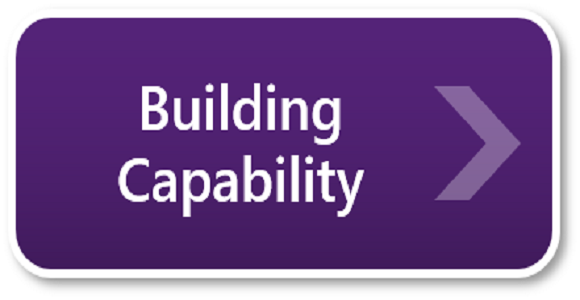Downloadable template: Strategy execution practices – Clear strategic intent inspires your organisation • Strategic intent gives a common purpose, lays emphasis on opportunities to pursue and inspires every stakeholder in the organization. • Strategic intent is usually derived from the company’s vision (or) many a times strategic intents form the basis for creating a vision for the organisation. • Strategic Intent directs the organization’s focus, thoughts and actions to the present. •…
Posts & Downloadables

Strategy execution practices – Promoting a no follow up culture
, by Rajesh AthihalliStrategy execution best practices: Follow ups are known to be a “routine” practice at most organizations to ensure things get done. Whether between managers and reportees or among peers, follow ups are considered almost necessary to get things accomplished. Needless to say, the amount of time spent here eats into one’s ability to be “productive”, apart from fueling frustration. This apart, an innate culture of follow ups is bound to hamper the ability to service…

Strategy execution capability – Real time capability building
, by Rajesh AthihalliStrategy execution capability building: Skills for strategy execution / Skills for goal execution Real time capability building is about precise and contextual application of skills and knowledge to the present wants of the job. Being agile and constantly working on building aligned and precise skills & knowledge across the organisation is the need of the hour considering the ever-changing landscape of business and the specific needs of people. Present learning methodologies Vs real time The…

Strategy execution essentials – 4 critical aspects
, by Rajesh AthihalliStrategy execution best practices The Sunday night thriller saw the Indian cricket team emerge victorious in a match that went right down to the wire! With the Kiwis requiring 15 runs of the last over, a very doable feat in the game of today, the man entrusted with the last over stuck, with precision, to a key thing called ‘optimal execution’. Here’re four things that I learnt from Jasprit Bumrah about optimal execution that correlates…

Strategy execution practices – Employee happiness
, by Rajesh AthihalliStrategy execution best practices: Whenever I’ve attempted to air anything that is a seemingly contrary point of view on employee engagement, I usually get shut out of the conversation almost instantaneously! How dare I even consider the possibility? How illiterate can I get? But wait, I haven’t finished! While I do have serious doubts about the ability of all “happy” employees to reign in success, I have no doubt in my mind that all successes…

Strategy execution practices -Too busy to get better
, by Rajesh AthihalliStrategy execution best practices: An article by Mario Chiock titled “What is Technical Debt” published on the 7th of November, 2016 carried this picture, which later my colleague, Shweta, shared with me. She went on to mention how relevant this picture was to our everyday lives and how we get tied in so much into the way things are, that we become oblivious to the better ways of doing them! How true & how wonderfully…

Strategy execution essentials – People capability
, by Rajesh AthihalliStrategy execution capability: Skills for goal execution / Skills for strategy execution: If organizational performance is but merely its ability to translate market potential into financial success, then it is imperative that “people capability” is a crucial success factor for any organization. While numerous studies, research, thought & action have gone into developing fairly advanced models & frameworks for competence management, on the ground facts reveal that the largest impediment to organizational success is strategy…

Strategy execution essentials – Clarity on goals
, by Rajesh AthihalliStrategy execution best practices : Clarity on goals For us to be able to coax our organization to better execute our strategies, isn’t it imperative for us to translate our plans into objective goals for each strategy implementing entity at our firm? Isn’t is important for us to ensure that all the entities in our organization are aligned to our plans? Aren’t these threshold requirements? Our study of over two dozen organizational leaders across industries…
Follow us on LinkedIn
Categories
POSTS & DOWNLOADABLES
 20 essential leadership skills for strategy execution - In this article, we have focused on functional skills essential for strategy execution. The behavioural and technical skills required, we believe have direct correlation to the functional skills required to complete the job on hand. This article covers the 20 skills that are essential for leaders to be better strategy executors.
20 essential leadership skills for strategy execution - In this article, we have focused on functional skills essential for strategy execution. The behavioural and technical skills required, we believe have direct correlation to the functional skills required to complete the job on hand. This article covers the 20 skills that are essential for leaders to be better strategy executors. Leadership responsibility #3 -Operational risk management Operations risks are potential risks from breakdowns in routine operational processes, people and systems that are controllable and can be avoided. To be competent goal executors, Leader should consider gaining better understanding of their internal operational risk profiles. Effective management of operational risks will aid better decision making and encourage more informed risk taking.
Leadership responsibility #3 -Operational risk management Operations risks are potential risks from breakdowns in routine operational processes, people and systems that are controllable and can be avoided. To be competent goal executors, Leader should consider gaining better understanding of their internal operational risk profiles. Effective management of operational risks will aid better decision making and encourage more informed risk taking. Interview Questionnaire - Execution skills for leaders The right questions can help you identify execution skills for leaders. Though it is not exhaustive, the interview questions and rating scale given below will reveal a candidate’s leadership skills to get things done. Hope it is useful to you.
Interview Questionnaire - Execution skills for leaders The right questions can help you identify execution skills for leaders. Though it is not exhaustive, the interview questions and rating scale given below will reveal a candidate’s leadership skills to get things done. Hope it is useful to you. Contextual capability building - The process of contextual capability involves functional analysis of operational requirements. Capabilities are identified based on the tasks required to be performed to achieve a goal or a strategy. Once the required capability inventory is defined, the most cost effective and efficient option to assess and build capability can be attempted.
Contextual capability building - The process of contextual capability involves functional analysis of operational requirements. Capabilities are identified based on the tasks required to be performed to achieve a goal or a strategy. Once the required capability inventory is defined, the most cost effective and efficient option to assess and build capability can be attempted. Creating role clarity & accountability - “Accountability” is known to most people. One should also know that there is more to it than just writing job descriptions and if incomplete can reduce the chances of implementing your organisation goals by 75%. Accountability should be used as a tool to inspire people to unlock their potential.
Creating role clarity & accountability - “Accountability” is known to most people. One should also know that there is more to it than just writing job descriptions and if incomplete can reduce the chances of implementing your organisation goals by 75%. Accountability should be used as a tool to inspire people to unlock their potential.

